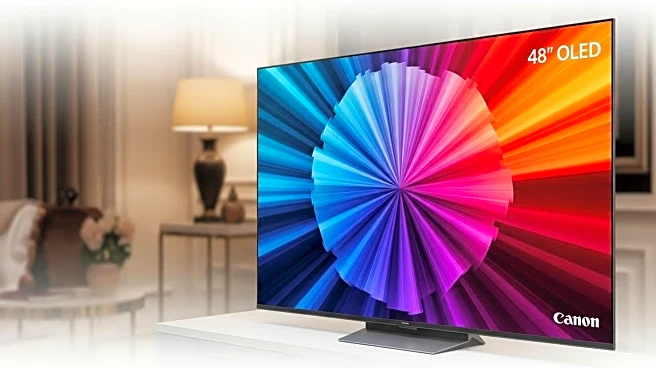What's Happening?
LG Electronics has announced a significant price reduction on its 48-inch C5 OLED TV, now available for $900, marking a $250 discount from its original price. This model is equipped with advanced features such as Amazon's Alexa smart assistant, a 144Hz variable refresh rate, and a 0.1-millisecond response time, making it particularly appealing to gamers. The TV supports AMD FreeSync Premium, Nvidia's G-Sync, Dolby Vision, and Dolby Atmos, ensuring a high-quality viewing experience. Additionally, it runs on webOS, providing access to over 350 free channels and thousands of on-demand titles.
Why It's Important?
The discount on the LG C5 OLED TV represents a significant opportunity for consumers to upgrade their home entertainment systems with cutting-edge technology at a reduced cost. The inclusion of gaming-specific features and smart assistant capabilities highlights the growing trend of integrating multifunctional technology into home appliances. This move by LG could influence market dynamics, encouraging competitors to offer similar discounts and innovations to attract tech-savvy consumers. The price reduction also reflects the broader industry trend towards making high-end technology more accessible to a wider audience.
What's Next?
Consumers interested in purchasing the LG C5 OLED TV are advised to act quickly, as the duration of the discount is uncertain. The competitive pricing may prompt other electronics manufacturers to offer similar deals, potentially leading to a price war in the smart TV market. Additionally, LG's focus on enhancing gaming and smart features could drive further innovation in the industry, with companies investing in research and development to meet consumer demand for integrated technology solutions.
Beyond the Headlines
The discount on the LG C5 OLED TV not only benefits consumers but also reflects broader shifts in the electronics industry towards sustainability and energy efficiency. As manufacturers strive to reduce waste and extend product lifespans, innovations in energy-efficient systems are becoming increasingly important. This trend aligns with global efforts to promote sustainable practices and reduce environmental impact, potentially influencing future product development and consumer purchasing decisions.









